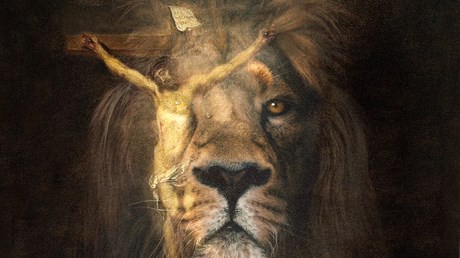The Sentence from C.S. Lewis That Could Change Your Life
Aslan is fictional, but the real Lion of Judah reminds us that we’re forgiven.

Passing around the corner from the dining room table, I heard one of my sons reading aloud from C. S. Lewis’s The Lion, the Witch and the Wardrobe. I stopped and listened, knowing how much those Narnia books have meant to me. He was in the middle of a line, speaking fast and about to move on to the next paragraph. I stepped out into his view and said, “Stop there; read it again. It’s the most important sentence in the book.”
I don’t know that I would always say it’s the most important sentence in the book; I could make the case for at least a dozen options. But I would say it’s the most important sentence for us right now.
Edmund had betrayed his siblings—goaded on by the White Witch and a taste for Turkish delight—and after an entire narrative leading the reader to despise the treasonous brat, Aslan, the lion and rightful ruler of Narnia, appeared and walked a sheepish and defeated Edmund back to the others.
“Here is your brother,” he said, “and—there is no need to talk to him about what is past.”
When a struggling young Christian comes to see me, it’s rarely because he or she wants to flout the holiness of a biblical ethic, as might have happened at the start of my ministry. Now, these tortured ones are actually trying to do their best in walking with Christ—confessing their sin, struggling with temptation, and seeking to live the life Jesus would have them live.
These young Christians often assume that “real” disciples can track their progress in holiness as one does calories on a weight loss app. Instead, they find that (as is the case for everybody) the deeper they go in discipleship, the more they realize how …